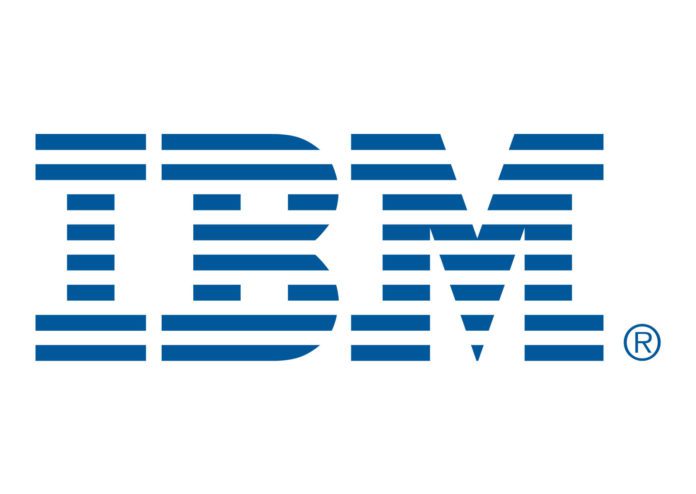Companies are using data science to study their data and make better business decisions through programming, modeling, data analytics, visualization, machine learning (ML), and artificial intelligence (AI).
Armonk, New York-based IBM is a leader in data science solutions. They continue to grow and change in the technology space, with a variety of products and services in data science, ML, deep learning (DL), and AI to fill out their data science portfolio.
Datamation interviewed Aakanksha Joshi — senior data scientist on the data science and AI team at IBM — who shared her perspective on the development and growth of the data science market:
Aakanksha Joshi

Joshi, based out of New York, works with enterprises in the public and federal markets to address some of their biggest business challenges using data and machine learning-driven solutions.
Joshi is also a strong advocate for ethical AI and using data and AI for good and has participated in and led initiatives around the same, both within and outside of IBM. She holds a master’s in data science from Columbia University and a bachelor’s in computer science from the University of Delhi.
Data Science Q&A
Datamation: How did you first start working in data science?
Joshi: My educational background consists of computer science and data science, so my path was quite straightforward. I got my first data science job as a summer intern while I was in grad school.
Datamation: What is your favorite thing about working at IBM?
Joshi: It’s the IBMers for me. At IBM, I’ve been fortunate enough to meet, work with, and learn from some of the most wonderful, talented, kind and helpful people. Behind all our technology and client success stories lies a team of inspiring, hard-working, client-obsessed IBMers.
Datamation: What sets IBM’s data science approach or solutions apart from the competition?
Joshi: IBM’s approach to data science is very holistic and puts governance, for both data and AI, at the center of everything, which I believe is a big differentiating factor. IBM believes in the importance of understanding how data is being used and collected. Here, it is understood that trust and transparency has to be at the center of everything that we do with data.
The Data Science Market
Datamation: What is one key data science technology that particularly interests you?
Joshi: I find the idea of combining data science and automation very fascinating. Automated workflows that can leverage multiple machine learning models to augment decision making are well-positioned to become extremely valuable.
Datamation: What is one data science strategy that companies should implement?
Joshi: I believe it’s building a strategy around data and AI governance. This means setting standards for how data is gathered, stored, and processed. This encompasses both technical processes and ethical principles for governance. Enforcing ethical policies can help increase the trust in your data and algorithms, and it can also set a strong foundation for data use. Models in production need to be trusted, and we will not be able to get there without the right governance infrastructure. To use AI at scale and deliver trusted outcomes, businesses need governed data that is integrated throughout the entire AI life cycle. A data fabric architecture unlocks trustworthy AI by starting with governed data access for data scientists.
Datamation: What is the biggest data science mistake you see enterprises making?
Joshi: Many teams in enterprises are still working with data that is siloed and spread throughout the organization without the right infrastructure in place to simplify data access while maintaining established data privacy guardrails. Data is hard to capture and harness effectively for a number of reasons. Most businesses have many different environments storing their data and running software. This means that their data is probably stored across public clouds, private clouds, on-premises workloads, and random servers.
The insights we get from incomplete data will be incomplete — and may also be incorrect. A crucial step towards connecting data that is siloed is ensuring that the data is truly as comprehensive as possible and one way to do that is to break down internal data silos. A way that IBM is doing that is using data fabric. A data fabric architecture addresses this challenge by serving as the connective tissue, connecting the right people to the right data at the right time. It helps to foster data sharing and accelerate data initiatives with intelligent and comprehensive data integration, embedded governance, and better data protection.
Datamation: What are the biggest factors that are driving change in data science?
Joshi: From my perspective, it’s the needs of the businesses. Data science is a very broad and malleable field — it can be focused on solving any challenge that a business is facing. As business challenges and strategies evolve, so does the field of data science and the focus areas of innovation within the field.
Datamation: How has data science changed during your time in the market?
Joshi: When I started working as a data scientist five years ago, the focus was on building machine learning models and using them to get business insights. Today, enterprises are still building models, but the focus has shifted towards MLOps and AI governance, to responsibly deploy those models into production and leverage them at scale.
Datamation: Where do you predict the data science market will be 5 or 10 years from now?
Joshi: I think that the future will have a bigger emphasis on data-centric and human-centric AI. People are realizing that it is increasingly important to make sure that you have good, accurate, ethically created data to create better AI systems. Addressing issues like bias in data will become a bigger focus as we try to create more intelligent AI, and there’ll be increased focus on drawing input from a more diverse group of people — with diversity in skill sets, backgrounds, lived experiences — to ensure the AI systems are equitable.
Personnel in Data Science
Datamation: If you could give one piece of advice to a data science professional in the beginning of their career, what would it be?
Joshi: My recommendation is to really focus on understanding the foundational concepts of data science first. For example, deep learning is fascinating, but I would not recommend jumping straight to neural networks before understanding the regression models. In practice, simpler models are sometimes more effective at solving complex problems.
Datamation: For the greatest business impact, what should data science professionals be focusing on most in their roles?
Joshi: I believe it’s important to view all our projects from the business impact lens. It’s awesome if someone has built a model with 95% accuracy, but it’s important to think about how the results of that model will help the business and how much will better accuracy further impact the business.
Work Life
Datamation: What is one of your top professional accomplishments?
Joshi: Having the opportunity to be the technical lead for IBM’s first-of-its-kind Data and AI for Social Impact incubator was definitely one of my big career highlights so far. The Social Impact Incubator empowered nonprofit and social impact organizations to explore the use of data and AI to advance their mission. Being able to accelerate missions that put data science and AI to work for a good cause is very fulfilling.
Datamation: What is your favorite part of working in the data science market?
Joshi: It’s the breadth of complex challenges for me! The same tools and techniques can be applied to solve so many different business challenges and make such a far-reaching impact. You can have a job where no two days look the same — and I find that idea very exciting.
Datamation: What are your favorite hobbies or ways to spend time outside of work?
Joshi: Outside of work, I enjoy taking long walks to unwind and relax at the end of the day, and occasionally, I also consider myself a photography hobbyist.



